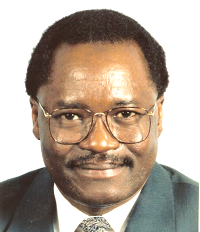| 2007 |
| At the first annual TTT International Project Investment Conference, WILMA presents a plan for pilot Joint Venture Commercial Estates (JVCEs). JVCEs are designed to enable the formation of community-based business clusters within a legal and financial framework designed to attract socially-responsible business partners globally. |
| WILMA produces the strategic planning document, The WILMA Business Ecosystem for Africa. This paper is intended to explain how African community-based business ventures and social enterprises can be created and taken to scale by a combination of local initiative, control, and responsibility (LICR) and medium-to-large scale businesses worldwide that are prepared to innovate in the way they do business in Africa. |
| WILMA begins to engage potential US business partners in Joint Venture Commercial Estates, e.g., in biofuel, water filtration, solar electric power, solar cooking equipment, construction, malaria control, and security systems. |
| WILMA engages BCW Inc., a California consulting company, as a partner for business start-up planning and fundraising, and launches its first application to USTDA. |
| In a demonstration of its development strategy's applicability outside of Africa, WILMA attends the Biennial Conference of the Yukon River Inter-Tribal Watershed Council to plan business opportunities for tribal villages in the Yukon River watershed. |
| WILMA Washington personnel cancel their usual July and November trips to Africa due to fundraising shortfalls. WILMA remains able to pay core overhead costs in Tanzania. |

